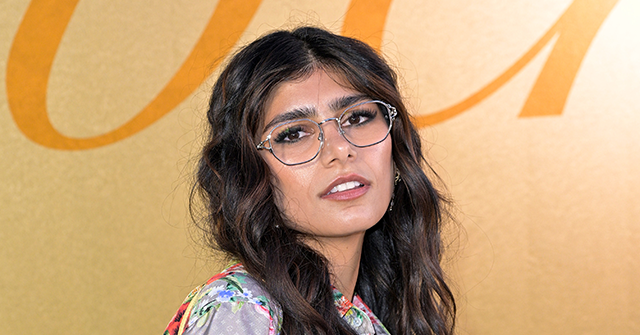Mia Khalifa, a former adult film star, ignited controversy with a recent video posted on social media, where she expressed disdain for U.S. military service members. In her provocative message, Khalifa, who has Lebanese roots and gained notoriety for her adult film career, openly mocked and criticized military personnel by stating her hope that they experience severe mental health issues such as PTSD. The video was taken after Khalifa publicly celebrated the Hamas attacks on Israeli civilians, an act that led to her public fallout with organizations such as Playboy, which subsequently severed ties with her.
Khalifa began her rant by addressing viewers, highlighting those who are not part of the military. With her comments, she painted a picture of soldiers as pawns in a larger game, suggesting they are indiscriminately sent to fight wars that do not concern them. By using a mocking tone, she aimed to diminish the sacrifices made by service members, insinuating that they were foolishly engaging in conflicts that ultimately resulted in neglect from the very country they fought to protect. Her choice of words and tone drew immediate backlash, and many perceived her message as insensitive and harmful.
In a particularly striking section of the video, Khalifa feigned tears and mockingly expressed her sorrow for soldiers returning home grappling with the psychological aftermath of war. She suggested that the U.S. government’s treatment of veterans is inadequate, trivializing the experiences of those who suffer from mental health issues after their service. Khalifa’s sweeping generalizations about veterans’ care further ignited outrage, with critics arguing that her statements undermine the real struggles of those who have served and often face uphill battles in receiving the support they need from the Veteran’s Administration (VA).
Khalifa’s controversial remarks also stem from her past experiences. Born in Beirut, she faced serious repercussions after her foray into the adult film industry, receiving threats from extremist groups such as ISIS. Her notoriety grew when she donned a hijab in her adult videos, resulting in backlash from various communities, including death threats due to the perceived disrespect towards Islamic culture. This tumultuous aspect of her life has led Khalifa to make incendiary statements, possibly seeking to remain in the limelight through shock value.
In light of her actions, Khalifa was condemned online, with numerous individuals calling her out for her disrespect toward U.S. service members and veterans. Many social media users emphasized the need to maintain a respectful discourse when discussing military issues, urging Khalifa to acknowledge the sacrifice and bravery of those who serve. The societal reaction to her statements reflects a broader dialogue about the responsibilities of public figures to approach sensitive topics thoughtfully, especially when those issues affect real lives and communities.
The fallout from Khalifa’s remarks demonstrates the consequences that can arise when public figures utilize their platforms to voice extremist opinions or dehumanize certain groups. By targeting service members, she ignored the complexities of military service and the various motivations behind enlistment. As discussions about mental health, military respect, and social responsibility continue, Khalifa’s incendiary commentary serves as a cautionary tale of the impact of words and the far-reaching implications of social media in shaping public perception.

